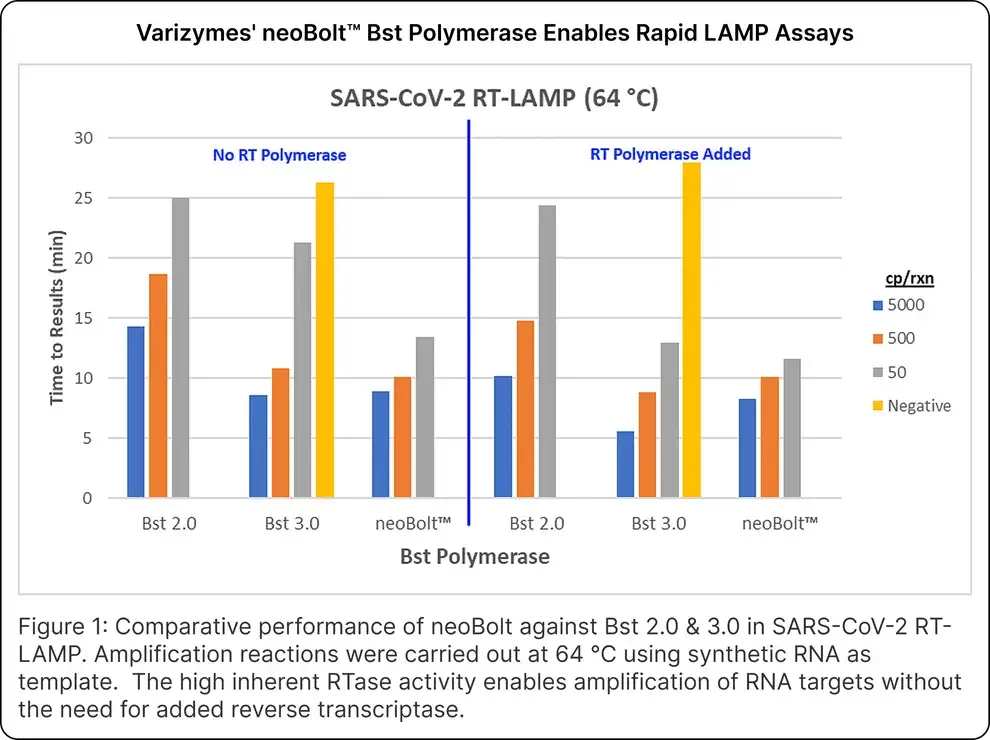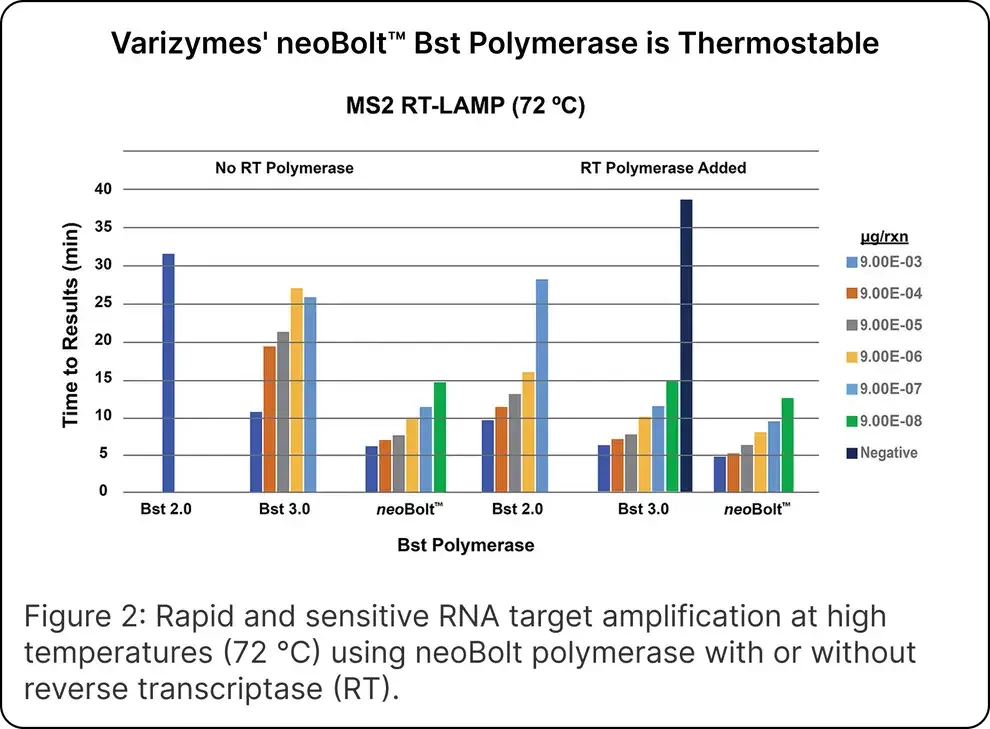Home/ Molecular Tools / neoBolt™ Bst DNA Polymerase
neoBolt™ Bst DNA Polymerase
neoBolt™ Bst DNA Polymerase
Varizymes' neoBolt Bst DNA Polymerase (patent pending) is a recombinant, truncated (lacks 5’ to 3’ exonuclease activity), thermostable, Bst-like DNA polymerase with high reverse transcriptase and strand-displacement activities, ideal for isothermal amplification of RNA and DNA targets. NeoBolt Bst DNA Polymerase has increased sensitivity and speed relative to other Bst DNA polymerases, and can incorporate dUTP.
Ordering Information
| Item | Product Number | Concentration (U/mL) | Amount (U) | Price |
|---|---|---|---|---|
| neoBolt Bst DNA Polymerase | 9100S | 8,000 | 5,000 | $170 |
| neoBolt Bst DNA Polymerase | 9100L | 8,000 | 10,000 | $330 |
| neoBolt Bst DNA Polymerase (glycerol-free) | 9101 | Inquire | Inquire | Inquire |
Couldn't load pickup availability
Fast
Target Agnostic
Thermostable
Product Details
Product Details
Please be sure to use the buffer provided with this product to ensure optimal results.
NeoBolt Bst DNA Polymerase is eligible for our OEM Customization Program. Contact us for more information.
This product is intended for research use only, not for therapeutic or diagnostic purposes in humans or animals. The safety and efficacy of this product in diagnostic or other clinical uses has not been established.
Properties
Properties
- Only Bst DNA Polymerase on the market with robust reverse transcriptase activity and DNA polymerase activity.
- No additional reverse transcriptase needed for amplification of RNA targets.
- Thermostable, working temperature range 64-72 °C.
- Tolerant to inhibitors.
- Use neoBolt Bst DNA Polymerase to develop LAMP assays with high sensitivity and specificity.
- Buffer composition: 50% glycerol, 50 mM Tris-HCl, 50 mM KCl, 1 mM DTT, 0.1 mM EDTA, 0.05% Tween-20, 0.05% NP-40 substitute, pH=7.5.
- Storage temperature: -20 °C.
Certificates of Analysis & SDS
Certificates of Analysis & SDS
Resources
Resources


The Varizymes Advantages
Fast
mLAMP results in about 15 minutes.
Target Agnostic
Amplify DNA or RNA targets with no added reverse transcriptase required.
Thermostable
Performs at up to 72 °C, enabling better performance with structured RNAs.
Stay in the Loop
Subscribe to our newsletter for the latest updates on cutting-edge enzymes, diagnostics, and exclusive offers.
Support
Corporate Info
Resources
- Choosing a selection results in a full page refresh.
- Opens in a new window.


